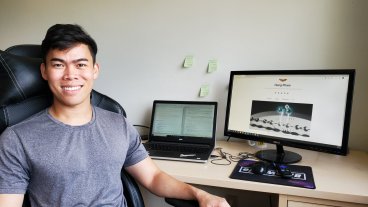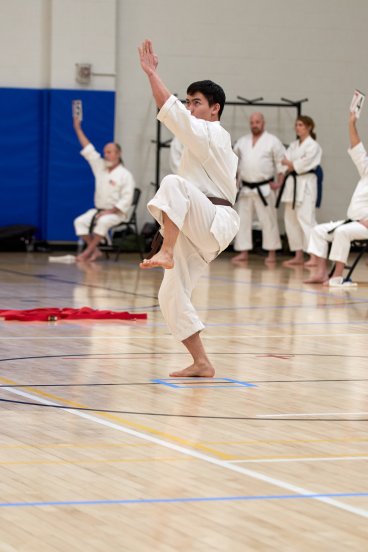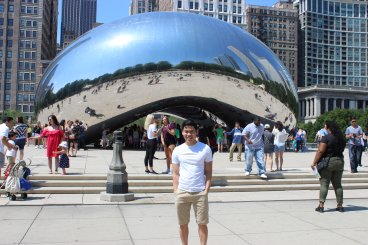Meet CTC: Hung Pham

September 1, 2020 -- Hung Pham is a fifth-year graduate student in the Gagliardi group. Hung received his bachelor’s degree in chemistry from the Vietnam National University Ho Chi Minh City - University of Science.
Hung is currently working on developing and applying electronic structure methods to better understand crystalline solids with unconventional properties. Many modern technologies and applications rely on these materials, including solar cells, low-loss superconducting circuits, and spintronics. For his research, he uses supercomputing technology and modern programming languages. As for theoretical techniques, he uses the wave function and density functional theories for periodic systems.
In his spare time, Hung practices Shotokan Karate. He also likes going to the gym and hanging out with friends at local bars and restaurants. Hung’s favorite part about living in the Twin Cities is that they have “a medium-size and diverse population, which makes it very peaceful.”

How did you become interested in studying chemistry, and what gets you the most excited about your field?
Frankly speaking, chemistry was my favorite subject in high school simply because I was really good at it. When I was a freshman in college studying chemistry, I realized that the physics courses were more interesting to me than the chemistry ones. Hence, I decided to combine my interests in physics and chemistry by studying quantum chemistry, which is basically a marriage between chemistry and quantum physics. What gets me most excited about my field is the power of quantum chemistry in predicting new astonishing phenomena, even before they are observed experimentally. This goes beyond the traditional ‘trial and error’ approach of chemistry, boosting the possibility of discovering new chemical compounds and materials.
Why did you choose the University of Minnesota, and what led you to join your current research group?
I decided to go to the University of Minnesota for my doctoral study because of its great team of world-renowned theoretical chemists. I chose the Gagliardi group because of the wide expertise that the group offers. Being in the group has allowed me to explore and learn more about several different active research topics.
What do you enjoy most about your research? What has been your most interesting or surprising finding so far?
I really enjoy my work in which I first derive mathematical equations, and then implement computer codes to study phenomena. In one of my projects, I have developed a quantum embedding-based technique to compute the so-called “electronic structure of materials,” which can basically tell us how the electrons are moving in a crystal. The technique is still in its infancy and we are working on improving it to make it a useful computational tool in the near future.

What are you most proud of about your academic career so far, and what’s one thing you’d like to achieve in the future?
I have developed two computer codes to process the wave function of materials that have been used by scientists around the world. Understanding the wave function of materials provides an insight into why certain materials behave unconventionally, so my codes essentially facilitate and boost the process of designing new materials. In the future, I would like to develop a computational technique based on quantum chemistry that is helpful for the field of computational materials science.
What drives you to be a better scientist?
I am always the biggest critic of my own work. I think being skeptical drives me to be more meticulous and thoughtful in every (computational) experiment that I perform. More importantly, I think being skeptical helps to avoid overselling a “discovery” in science.
What advice do you have for aspiring scientists?
Go with your gut when it comes to choosing a research topic, enjoy what you are doing, and trust yourself.
